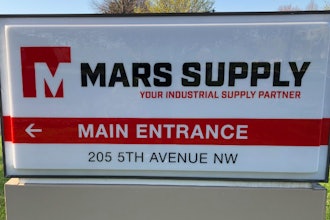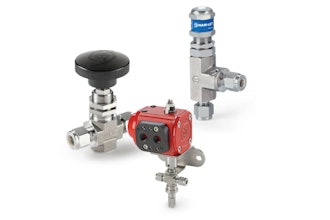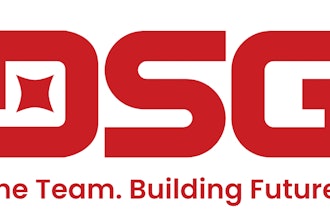It’s no secret that the distribution industry is changing. Technology is rapidly transforming a marketplace that used to rely on word of mouth into one that Tweets. One thing remains the same, however: there is a need for competent sales representatives to grow and represent your brand. As Jack Keough wrote in our March/April issue, “the role of the outside salesperson has never been more important.” While this remains true, the sales role has changed. We analyze that change in this three-part special segment all about the modern sales organization.
ID: How do you think well-trained salespeople help companies stay alive – and even grow – in the recent recession years?
George Athan, Chief Strategist, MindStorm Strategic Consulting: The fastest way to grow a business and dramatically increase revenues and boost profits is by training the sales team to be more effective. There are only three ways to grow a business and everything else is just an extension of these three ways: 1) Get more customers, 2) Get customers to increase the amount of money they spend with you on each transaction, and 3) Get customers to make purchases more frequently. A well trained sales person will be very effective at doing all three.
Steve Hartkopf, Managing Partner at Aligned Marketing, LLC: Distributor management and industrial customers agree that well-trained salespeople are important to their long-term success. These individuals are experts in one field or another; think cutting tools or safety. As such, they add more value than an average salesperson and that value is critical during harsh economic times, when every decision seems to carry the weight of survival.
Tom Metcalf, President, TeleNotes: Well-trained salespeople are not affected by swings in the economy, current political environments, or even corporate trends or initiatives. Top-level sales executives do not need quotas or incentives, although they will always accept, and even hunt down, bonus pay for exceeding corporate sales goals. These individuals are driven to achievement all on their own.
ID: In what ways can distributors encourage loyalty and longevity in their salespeople? How can they get them to stay at the company for the long haul?
Athan: Salespeople want to be recognized for their contribution to the company and appreciated. If you get a good feeling when someone “liked” your comment on social media, you can imagine what a mention or some type of acknowledgement would do by the boss. Management’s first thought is to throw money to reward salespeople, but that is not always fulfilling. It can make you feel cheap inside, almost like you sold yourself. To encourage loyalty and longevity, make the salesperson feel a true sense of ownership and desire to continue the company’s mission.
Hartkopf: It’s often missed but it’s not rocket science: people want to be respected and appreciated. Stated another way: being a good person makes it easier to be a good manager. Staying true to your values is the best way I’ve seen to retain people. Money will always lure some folks away, but no company can pay everyone top-dollar, so don’t try.
Metcalf: One of the greatest ways to keep great salespeople is to hire and train great sales managers. Be careful that you don’t take your top performing salesperson and make him or her your sales manager. That will work sometimes, however, more often than not, the skill set and personality profile of an effective sales manager is quite different from that of a top performing sales professional.
ID: What tools can distributors offer salespeople to make them more efficient and more effective?
Athan: Vital to a distributor’s business is constant sales training. I can’t stress this enough. You should be training on sales skills and product knowledge. If a company can’t afford a professional training company, then they must create an in-house program but it must be consistent. Also, it is very important to teach time management strategies and force salespeople to follow them. We can double a sales team’s production just by teaching them how to be more productive.
Hartkopf: It seems to me there’s a need in the industry for sales training that is delivered over time and includes sales skills such as conducting a needs assessment, how to ask probing questions, leading a training session, presentation skills, negotiations, when to close an order, how to manage your time or ask for an appointment, etc.
Metcalf: Time. What activities are your salespeople doing that are distracting from selling? Do they spend too much time in the office? Helping in the warehouse? Delivering product? Filling out reports? Updating their customer database? Doing quotes? What activities can be taken off their plate so they can invest more time with customers?
ID: What do you feel is the most important thing that distributors can do to increase their sales?
Athan: Strategically integrate sales and marketing. Unfortunately, these two departments often have little to no communication. This limits the effectiveness of the marketing campaigns because there is no sales support. This also limits the effectiveness of sales because there is not one unified message going out to prospects and customers. Sales and marketing should be operating as one cohesive unit with the same strategic objectives. Marketing creates interest or finds interested prospects and customers as the sales team turns that interest into revenue. Sales and marketing should work together to create one common message that creates a compelling story to buy. Then, deliver this message through both sales and marketing channels.
Hartkopf: Pricing. Many distributors don’t understand their profitability by account, by salesperson, and by supplier. It’s a lot of data, but getting through that data can quickly drop 2-5 percent to the bottom line, which typically means doubling net profits. I’ve been involved in pricing initiatives at two distributors and one manufacturer. Percentage-wise they all produced similar results but at the manufacturer that meant $4.5M delivered to the bottom line. That was 96 percent of the business unit’s price gains for the year. Price gains are basically all profit. We didn’t need to buy more products or raw materials, we didn’t need to add any new accounts, and we didn’t need to hire anyone. All we did was manage pricing better. Pricing is the fastest way to higher sales and more profits available to any business.
Metcalf: One of the most important things you can do is have a vision for the company. Begin with the end in mind, and then work out the steps to achieve the envisioned goal. Salespeople want to accomplish and succeed. With a proper vision in mind, and by formulating the steps needed along the way to keep the vision alive, revenue goals will be exceeded, salespeople will be productive, turnover will be obsolete, and your company will grow in any economic or political environment.
To read part two of this series, click here.
For more news and opinions from Abbigail Kriebs, subscribe here and follow her on Twitter at @AbbigailatID.
The Expert Bios:
George Athan is a business strategy consultant and sales trainer who helps companies, business owners, and executives rapidly grow their organizations through mastering four key performance areas: Strategy, Innovation, Marketing, & Sales.
Steve Hartkopf has nearly 30 years of business experience in the industrial and electrical industries. He has held executive positions at SupplyForce, Hagemeyer, Industrial Distribution Group (IDG), and TE. Steve’s experience includes both manufacturing and distribution with functional responsibilities in marketing, sales, channel management, strategic pricing, and ecommerce. Steve founded Aligned Marketing in 2008.
Tom Metcalf is the founder and President of TeleNotes, a CRM software that helps salespeople get stuff done. He is a CSP (Certified Sales Professional) with over 15 years of experience as a CRM consultant. For over 20 years, he has worked extensively with companies seeking to improve their time and territory management processes. His expertise has aided thousands of salespeople increase their productivity in the field, close more deals, and spend more time with customers.























